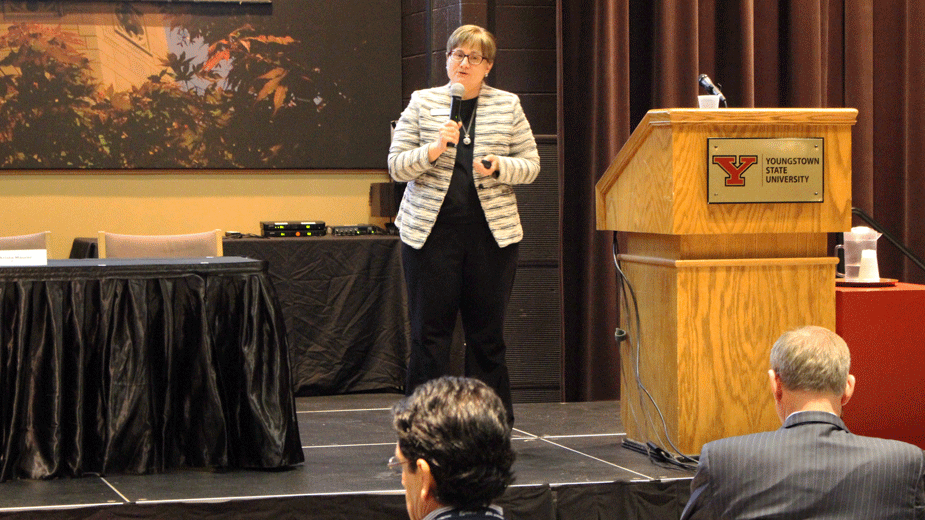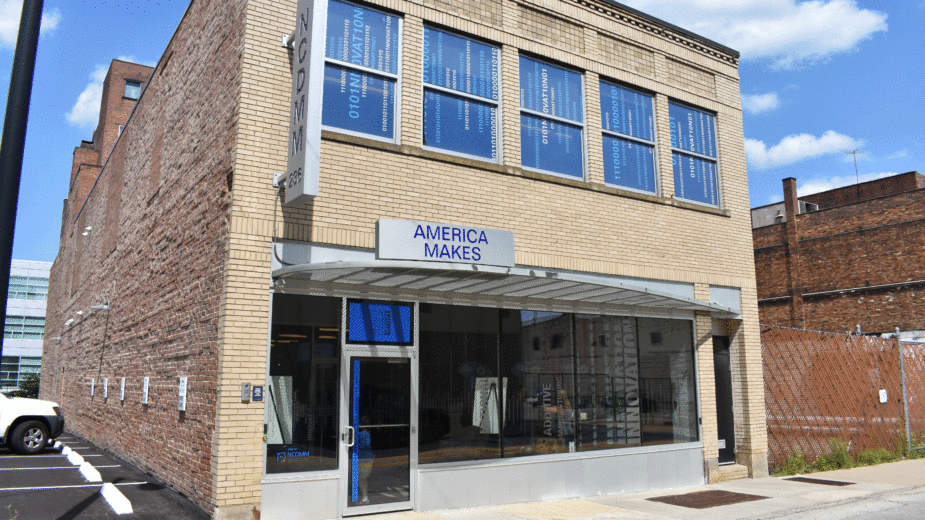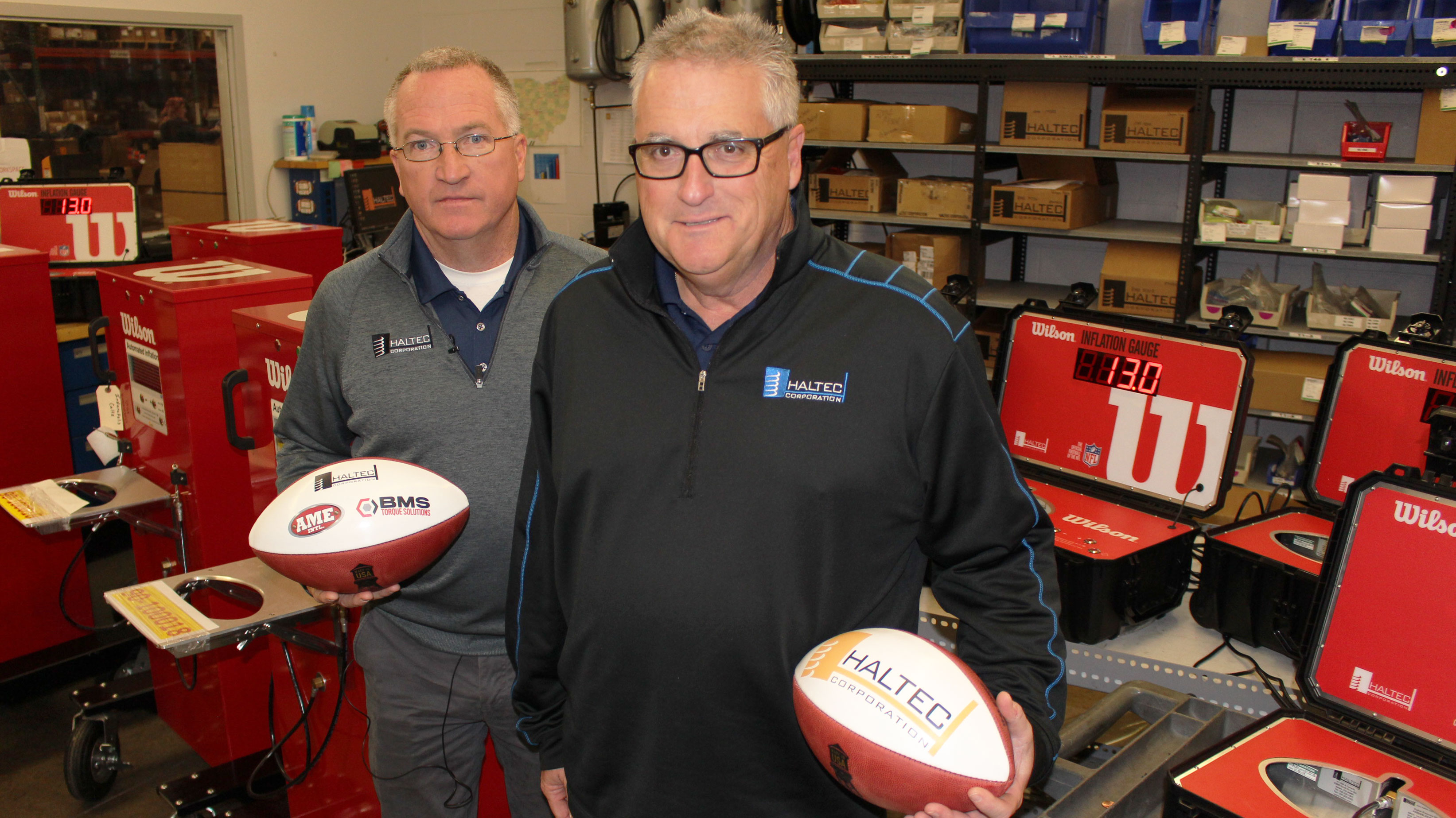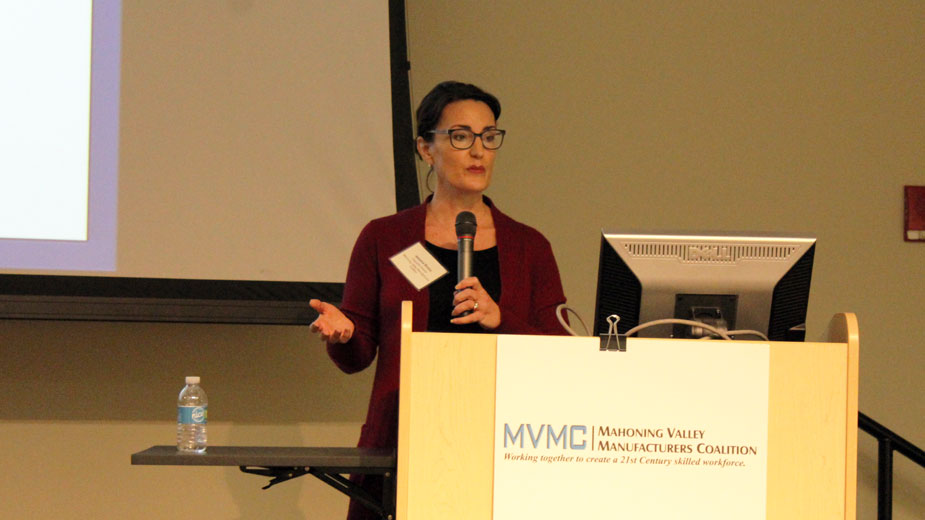3-D Printing Apprenticeship Outlined at America Makes Forum
YOUNGSTOWN, Ohio – A new 3-D printing apprenticeship program framework developed with the assistance of America Makes sets the stage for manufacturers to develop workers’ additive manufacturing abilities.
The framework, developed by the Robert C. Byrd Institute at Marshall University in conjunction with its partners, lays out a three-year course covering training from basic industrial safety to the history of 3-D printing and from computer-aided design to part design. The final year of the apprenticeship program would cover materials, electrical systems, risk management and design economics.
“What they learn is a combination of job skills. Everyone learns leadership and communication skills to make them better employees,” said Lucinda Curry, director of the Apprenticeship Works program at the Byrd Institute. “There’s so much to learn within the additive manufacturing arena and it’s evolving every day. It’s a constant learning process.”
Most of the program work – about three-quarters, Curry said – will be focused on the technical aspects while the remaining coursework will deal with health and safety, manufacturing basics and soft skills.
A full version of the apprenticeship framework and the required competencies can be found at the Byrd Institute’s website. Curry said she is still seeking feedback from those in the additive manufacturing sector about the apprenticeship requirements, inviting responses via email at [email protected].
The new program was unveiled Tuesday at the Expanding Apprenticeships Through Apprenticeships Works forum, hosted by America Makes at Youngstown State University. Among the other Byrd Institute partners who contributed to developing the framework were the Society for Manufacturing Engineers, the National Coalition of Advanced Technology Centers, West Virginia Women Work and the U.S. Department of Labor’s Office of Apprenticeship.
“Their membership has vetted this program and given us input to what the industry needs are,” Curry said. “The technology has been around for years, but we’re seeing new processes and materials. [It helps] stay ahead of the game and understand additive manufacturing design.”
Part of the apprenticeship program, which is available nationwide, Apprenticeship Works will provide employers with a learning management system to track the progression of on-the-job training and related technical instruction, or RTI. For on-the-job training, Apprenticeship Works will offer up to 80 hours of on-site supervisor training. Apprentices in the program must complete at least 144 hours per year of online related technical instruction.
Development of the framework was funded by a $4.9 million grant from the Department of Labor.
With YSU’s Center for Innovation in Additive Manufacturing now in its fourth year and development underway for the Mahoning Valley Innovation and Commercialization Center, vice president for research Michael Hripko said that incorporating the framework with curricula would be beneficial for students.
“When you’re putting together an advanced manufacturing center, the facility is part of it, the equipment is part of it and so is the curriculum and programming,” he said. “What we’re seeing is the opportunity to leverage existing apprenticeships programs that have been developed and proven, maybe incorporating them into our academic programs.”
It’s not out of the question, he continued, for students to graduate from Youngstown State with both a degree and some of their apprenticeship work already completed.
“Imagine the capabilities of a candidate graduating from a university who can weld, machine and understand additive manufacturing processes,” Hripko said. “We can incorporate CAD, computer-aided analysis and data-enabled manufacturing. Those are some dimensions in the new manufacturing model we’re incorporating.”
The additive manufacturing technician apprenticeship program marks the 17th program offered by the Byrd Institute. In addition to those services, the institute, housed at Marshall University in Wheeling, W.Va., also offers CNC machine leasing, reverse engineering, machine set-up, online training and ISO certification training.
“It’s anything from a short-term half-day class on nondestructive testing to a four-year apprenticeship to a two-year additive manufacturing technician program,” Curry said. “It’s dependent on their needs and we want to help fill those gaps.”
Copyright 2024 The Business Journal, Youngstown, Ohio.



